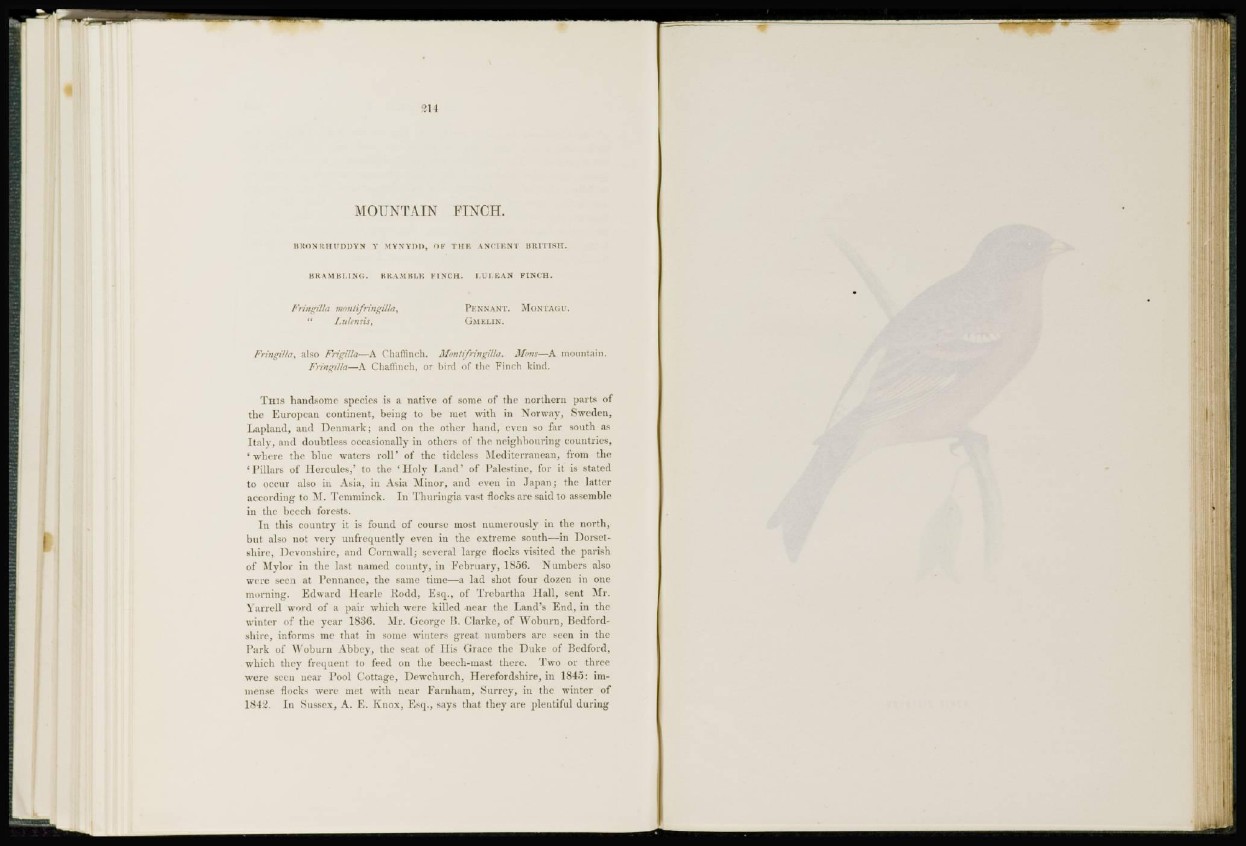
MOUNTAIN FINCH.
BRONRHtTDDYH V MYNTDD, OF THE ANCIENT BRITISH.
BRA MBIT NO. BRAMBLE PINCH. I.L I.KAN FINCH.
Fringilia moniifringiUa, Pennant. Mo n t a g u.
" Lit/- ruis, Gm k l i n.
Fringtila% also FrigM/a—A Chaffinch. MonHfringiUa. Mom—A mountain.
Fringtfla—A Chaffinch, or bird of the Finch kind.
THIS handsome species is a native of some of the northern parts of
the European continent, being to be met with in Norway, Sweden,
Lapland, and Denmark; and on the other hand, even so far south as
Italy, and doubtless occasionally in others of the neighbouring countries,
'where the blue waters roll' of the tideless .Mediterranean, from the
'Pillars of Hercules,' to the 'Holy Land* of Palestine, for it is stated
to occur also in Asia, in Asia Minor, and even in Japan; the latter
according to M. Teniiuiuck. In Thuringia vast flocks are said to assemble
in the beech forests.
In this country it is found of course most numerously in the north,
but also not very unfrequently even in the extreme south—in Dorsetshire,
Devonshire, and Cornwall; several large flocks visited the parish
of Mylor in the last named county, in February, 1856. Numbers also
were seen at Pcnnance, the same time—a lad shot four dozen in one
morning. Edward Hearle Kodd, Esq., of Trebartha Hall, sent Mr.
Yarrcll word of a pair which were killed -near the Land's End, in the
winter of the year 1830'. Mr. George IS. Clarke, of W'oburn, Bedfordshire,
informs me that in some winters great numbers are seen in the
Park of W'oburn Abbey, the scat of His Grace the Duke of Bedford,
which they frequent to feed on the bccch-ma>t there. Two or three
were seen near Pool Cottage, Dewchurch, Herefordshire, in lSIo: immense
flocks were met witli near Farnham, Surrey, in the winter of
1842. In Sussex, A. E. Knox, Esq., says that they are plentiful during